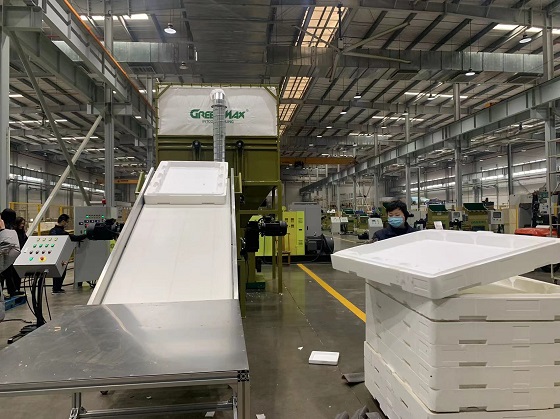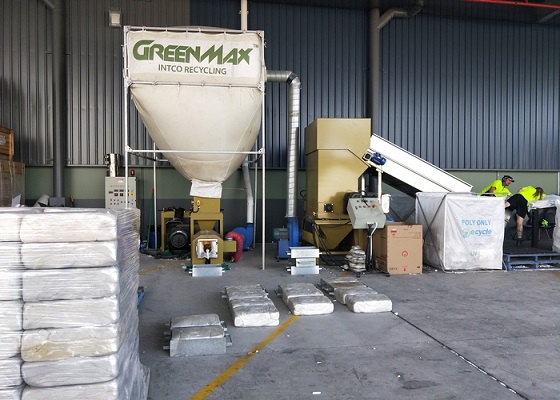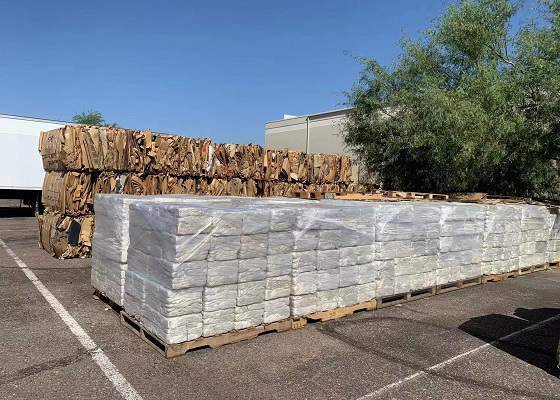Australia's EPS Recycling Revolution: How Polystyrene Melting Machines Drive Sustainability
Expanded Polystyrene (EPS), widely known as Styrofoam, is a lightweight and durable material commonly used in packaging, construction, and insulation. However, due to its bulky structure and low recycling rates in the past, EPS has long been considered a problematic plastic. In recent years, Australia has launched multiple initiatives to phase out and recycle EPS packaging, with polystyrene melting machines emerging as a critical technological solution.

National Roadmap to Eliminate EPS Waste
The Australian government, through the Australian Packaging Covenant Organisation (APCO), has introduced a progressive roadmap to eliminate business-to-consumer EPS packaging:
80% phase-out by July 2023
90% phase-out by July 2024
100% elimination by July 2025
This roadmap prioritizes transitioning to recyclable or compostable alternatives. For sectors where EPS alternatives are not yet viable, APCO is supporting the development of product stewardship schemes and closed-loop recycling systems by the end of 2024.
To support these national targets, the role of advanced recycling equipment like polystyrene melting machines becomes crucial.
What is a Polystyrene Melting Machine?
A polystyrene melting machine, also known as an EPS densifier or hot melter, is an industrial machine designed to reduce the volume of polystyrene waste through heat compression. It melts EPS into dense ingots or blocks, reducing its volume by up to 90%. These ingots can then be reused as raw materials for new products, such as construction boards, plastic pallets, or decorative moldings.
Key benefits of using a polystyrene melting machine include:
Space Efficiency: Reduces storage and transportation costs.
Environmental Impact: Prevents EPS from entering landfills or waterways.
Recyclability: Transforms waste into high-quality, reusable material.
Industry Initiatives: EPSA & StyroCycle
In 2023, Expanded Polystyrene Australia (EPSA) launched StyroCycle, a nationwide initiative to facilitate clean EPS drop-offs and recycling. By 2024, StyroCycle expanded to all major states, including Victoria, New South Wales, South Australia, Queensland, and Tasmania.
Thanks to this initiative, over 128 tonnes of EPS were diverted from landfills in one year—equating to a 515-tonne reduction in CO₂ emissions. EPSA's efforts have not only increased awareness but also demonstrated that with the right technology and infrastructure, EPS can be sustainably recycled.
Polystyrene melting machines play a vital role in this ecosystem. At each drop-off facility, collected EPS is fed into melting units, converted into compact bricks, and shipped for reuse in manufacturing.
Global Recognition & Policy Alignment
Australia’s commitment to EPS recycling has gained recognition from the United Nations Environment Programme (UNEP), which classified EPS as “recyclable in practice and at scale.” This reinforces the idea that with proper policy support and access to technologies like EPS melters, polystyrene can be managed sustainably.
The synergy between national policies, industry commitment, and technological innovation is helping Australia meet its environmental goals while setting a global benchmark.

How Businesses Can Participate
If you're a manufacturer, logistics provider, or retailer dealing with high volumes of EPS packaging, integrating a polystyrene melting machine into your operations can offer several advantages:
Cost Reduction: Lower waste disposal and storage costs.
Brand Reputation: Align with national sustainability goals and improve CSR profile.
Revenue Opportunities: Recycled EPS ingots are in demand globally and can be sold as raw material.
Many local councils and companies have already begun installing such machines at warehouses, depots, and recycling centers. Machines range in size from compact units for SMEs to industrial-scale systems for manufacturing plants.
Outlook: A Sustainable Future for EPS
With the Australian government targeting a full phase-out of business-to-consumer EPS packaging by July 2025, the use of polystyrene melting machines will only grow. These machines offer a scalable, efficient, and eco-friendly way to process polystyrene waste, making them essential tools in the national fight against plastic pollution.
By continuing to expand drop-off networks like StyroCycle, supporting private-sector adoption of melting technology, and investing in research and innovation, Australia is on track to build a world-leading EPS recycling system.

Conclusion
Polystyrene has long posed environmental concerns due to its bulky, non-biodegradable nature. But with the deployment of polystyrene melting machines and strong national leadership, Australia is proving that even difficult plastics can be part of a circular solution.
As EPS recycling becomes more widespread and technologically advanced, the hope is that Australia will not only meet but exceed its sustainability targets—setting an example for other nations in tackling plastic waste through innovation and responsibility.
